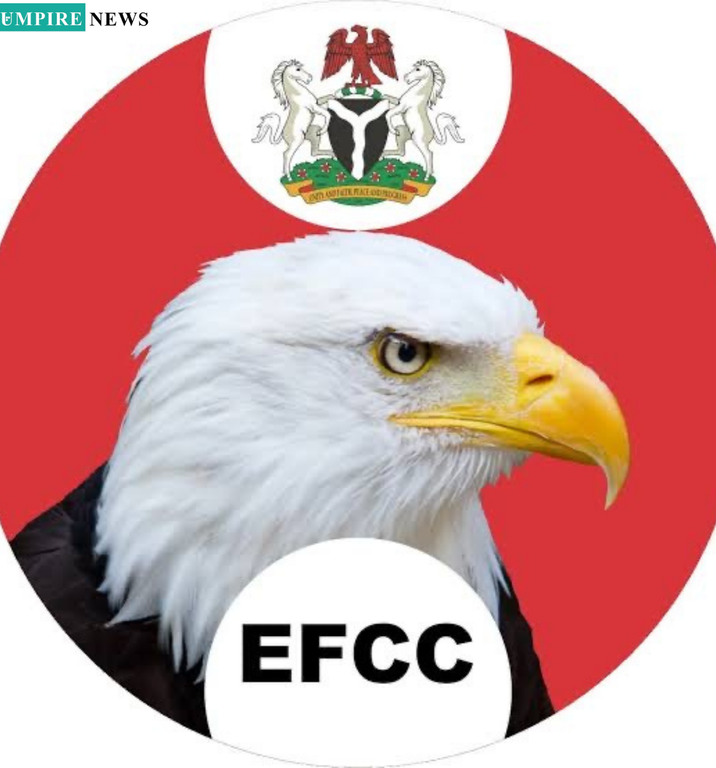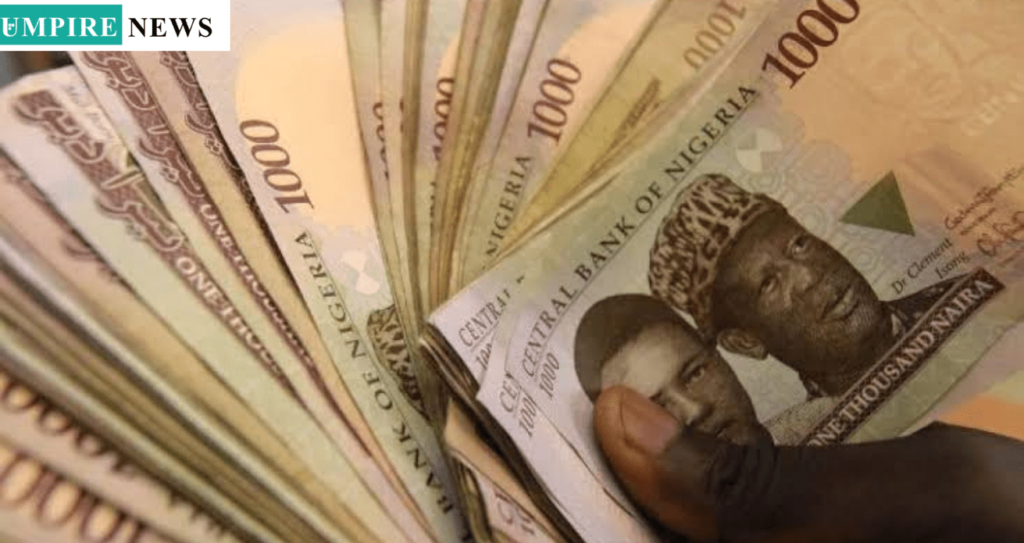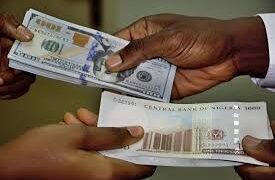Despite the clear legal prohibition and clampdown on the abuse of the Naira, particularly the acts of spraying and selling the currency at social events, many groups and individuals continue to flagrantly disregard these laws, as recent investigations have revealed.
The law governing the use of the Naira states explicitly, “Spraying of, dancing or marching on the Naira or any note issued by the Bank during social occasions or otherwise howsoever shall constitute an abuse.”
According to this regulation, the punishment for such an offense is no less than six months in prison, a fine of N50,000 (approximately $36 or £29), or both.
Despite the stringent consequences, many Nigerians continue to breach this law.
For example, during a church function in Ikorodu, Lagos, held in late August, our correspondent observed parishioners openly spraying the Naira as they danced to traditional Owambe music.

In their excitement, some of the newly minted currency notes ended up on the floor, a clear violation of the law.
When asked about this behavior, one of the participants responded dismissively, saying, “I am not mutilating the Naira oh. As you witnessed, we were careful in spraying the Naira to our church host and he held it to his chest. Only a few crisps fell to the floor. We respect the order of the EFCC, we are not committing an offense oh.”
A similar occurrence was witnessed at a party function in the upscale area of Lekki, Lagos, where vendors were openly selling new Naira notes in denominations of N500, N1000, and N200.
These vendors were profiting from the illegal trade, charging N1,000 for every N10,000 worth of notes sold, and sometimes even N1,500, making a significant gain.
While some partygoers were aware of the potential presence of Economic and Financial Crimes Commission (EFCC) officials, they carefully continued the illegal spraying of the Naira, knowing the risks involved.
Despite these violations, there is a growing call for stricter enforcement of the laws against the abuse of the Naira.
A political analyst, Derin Omowale, has called on the EFCC to intensify its efforts to crack down on offenders and deepen the implementation of penalties for spraying Naira notes during social events.
He stressed the need for a broader network of enforcement and continuous public education across all regions in Nigeria to emphasize the importance of handling the national currency with care.
“It is simple! A law has been made that prohibits the unethical and rough handling of the Naira. Men and women ordinarily should be law-abiding, but when we see our leaders and men that should obey the law sometimes transgress, then ordinary citizens will follow them.

There is a need to do more education on why we need to handle the Naira properly,” Omowale said.
Notably, high-profile individuals have already been arrested and penalized for their involvement in the illegal spraying and abuse of the Naira.
Socialites like Idris Okuneye, popularly known as Bobrisky, and Cubana Chief Priest, were previously apprehended by the authorities for violating the laws on Naira handling.
Bobrisky, a controversial cross-dresser, pleaded guilty to the charges and was sentenced to six months in prison, which he served at the Kirikiri Correctional Service in Lagos.
These arrests and penalties, however, have done little to curb the widespread disregard for the law.
The continuous flouting of these regulations highlights the challenges the Nigerian authorities face in enforcing financial discipline, particularly in an environment where the spraying of cash is seen as a cultural norm at celebrations such as weddings, funerals, and birthdays.
The EFCC and the Central Bank of Nigeria (CBN) have consistently emphasized the need for Nigerians to respect the nation’s currency, as it is not just a medium of exchange but a symbol of national identity and pride.
The abuse of the Naira, especially in public settings, undermines the dignity and value of the currency, further contributing to the country’s broader issues of financial mismanagement and corruption.
In response to this persistent problem, some experts have suggested that the penalties for Naira abuse need to be more severe, and the enforcement of the laws more visible.
There have been calls for increased public awareness campaigns aimed at educating Nigerians about the long-term consequences of such actions.
Others have suggested that the government should adopt technology-based solutions to monitor and prevent the illegal sale and spraying of the Naira at events.
The persistence of Naira abuse, despite multiple high-profile arrests and clear legal prohibitions, points to a deeper cultural issue that needs to be addressed if Nigeria is to maintain the integrity of its national currency.
The government, law enforcement agencies, and the financial sector will need to work together to ensure that the Naira is treated with the respect it deserves, both in law and in practice.
In the meantime, Nigerians continue to watch with bated breath as the EFCC and other agencies ramp up efforts to clamp down on the illegal spraying and selling of Naira notes.
The challenge for the authorities will be in balancing enforcement with education, ensuring that the public understands the importance of these laws and the value of maintaining the sanctity of the country’s currency.































